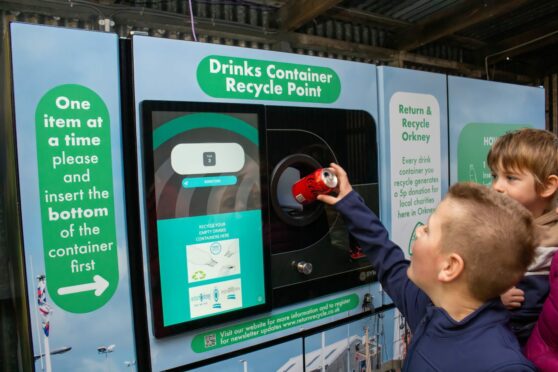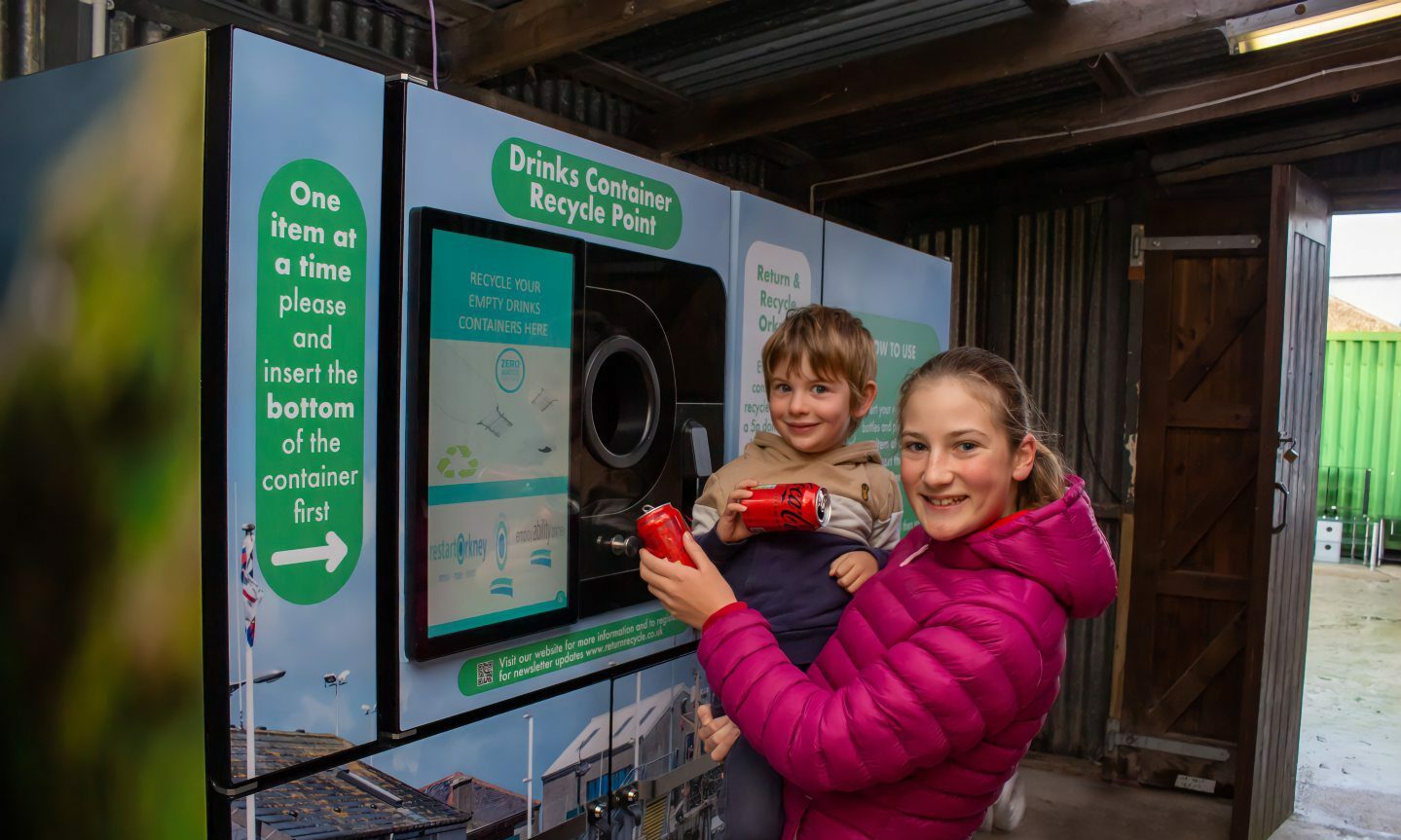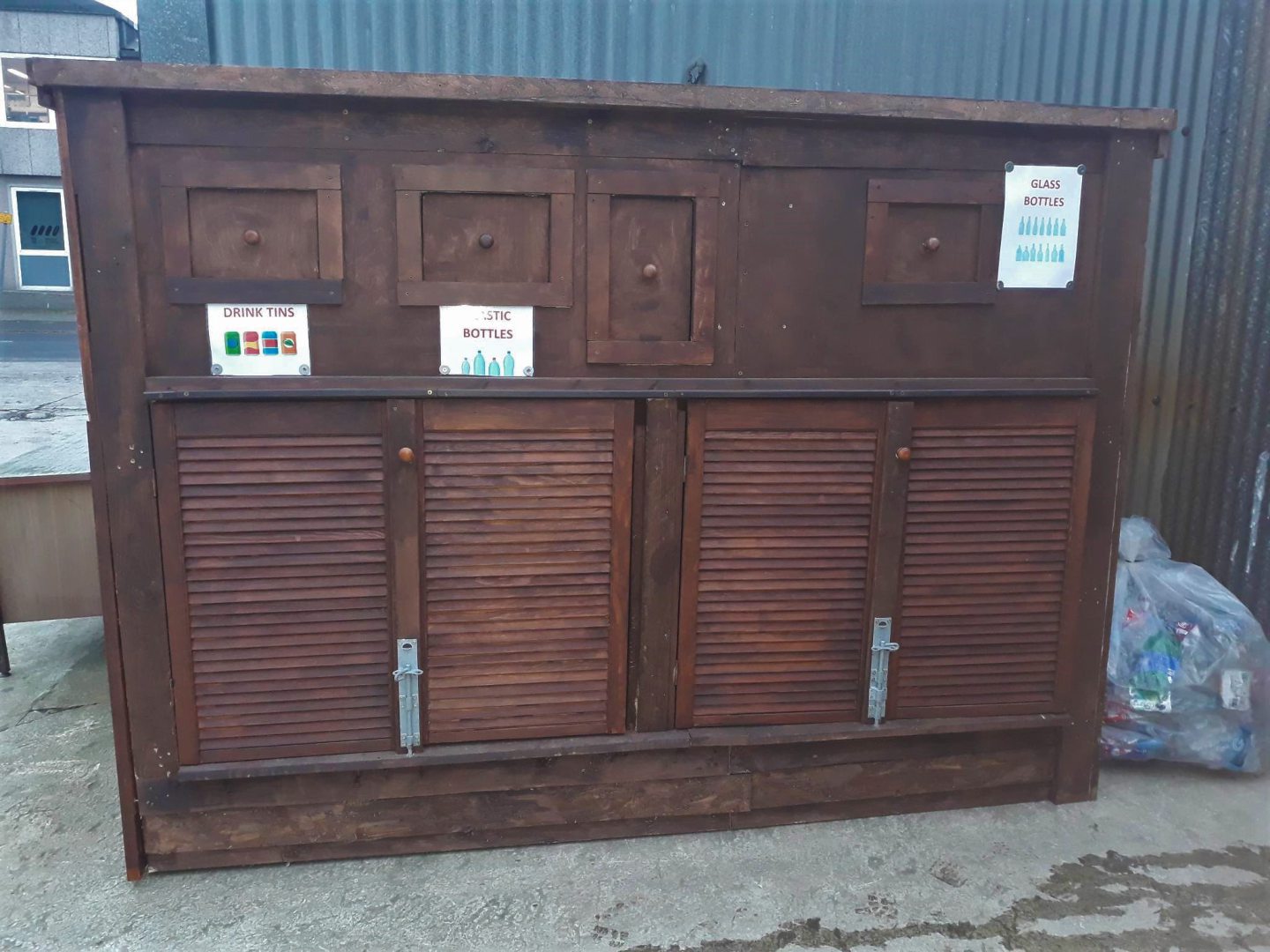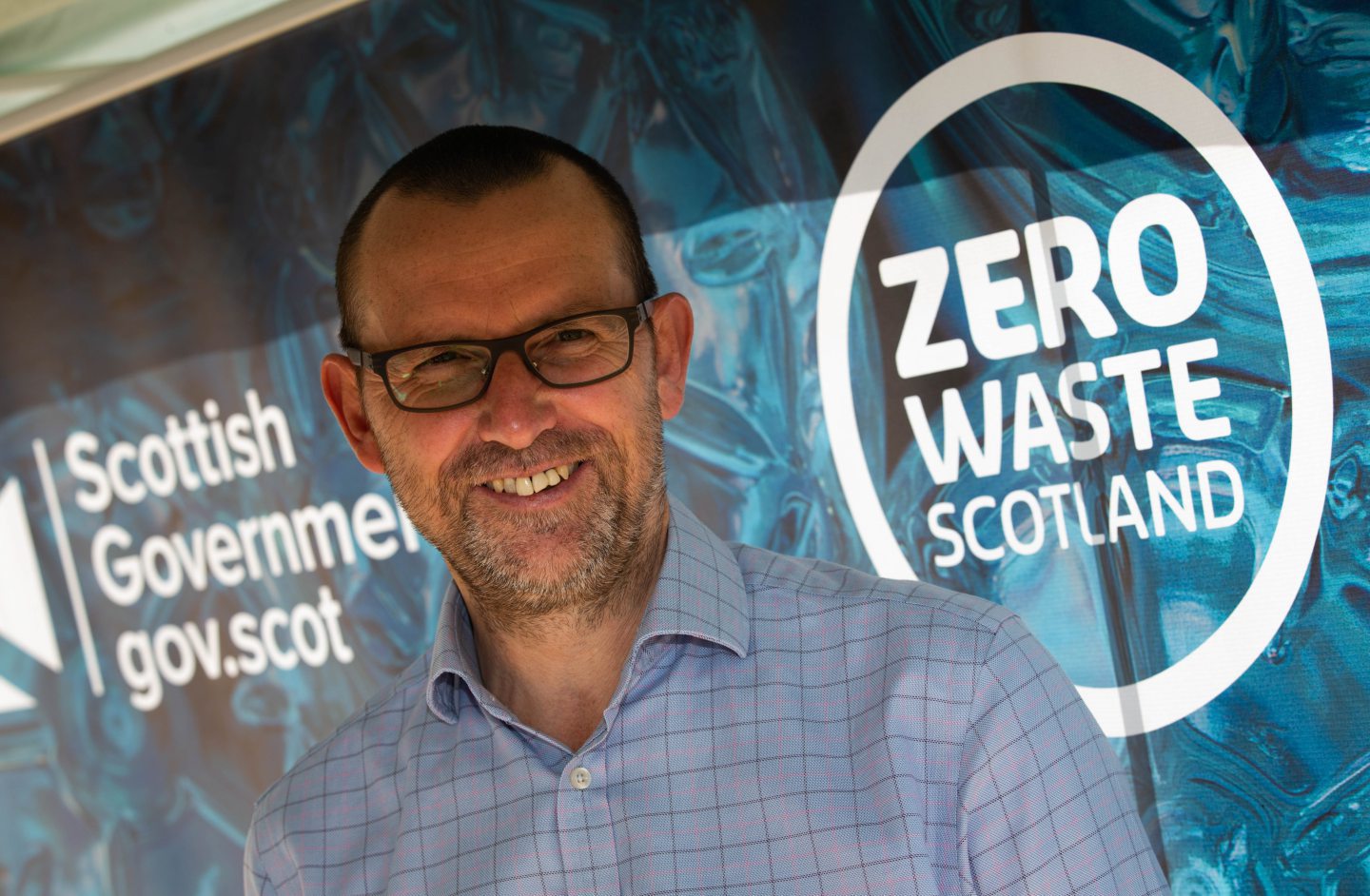The Orkney pilot project for Scotland’s controversial Deposit Return Scheme has been a success so far, according to Zero Waste Scotland.
Since it launched at the start of November, Return and Recycle Orkney has resulted in more than 15,000 drinks containers being processed for recycling.
It has involved a pair of reverse vending machines (RVMs) installed in Kirkwall, where users can recycle their empty drinks containers.
The initiative is a trial run for the full Deposit Return Scheme (DRS), due to be rolled out all across Scotland on August 16.
Once live, the scheme will mean almost every plastic, metal or glass bottle or can will come with an extra 20p cost, which can only be recouped if a consumer follows strict new rules properly.
The wider DRS project for Scotland has attracted a great deal of criticism, particularly from smaller businesses fearful for the potential financial impact of the extra restrictions they will have to abide by.
But Zero Waste Scotland says the Orcadian pilot will provide “valuable” operational and practical insight into how the nationwide DRS will work out in practice — and insisted it will “drive behaviour change”.
What is the Orkney Deposit Return Scheme pilot, and what has it got to do with the Scotland-wide roll-out this summer?
Today is a step forward in Scotland’s deposit return journey.
Return & Recycle Orkney will see citizens try several elements of deposit return, using two reverse vending machines to return drinks containers for recycling.
Find out more here: https://t.co/3E3mM8XBFX pic.twitter.com/Pi6WxAPAXA
— Zero Waste Scotland (@ZeroWasteScot) November 4, 2022
The Return and Recycle Orkney pilot was officially launched on November 4 last year by circular economy minister Lorna Slater.
It involves two RVMS located at the Employability Orkney building in Kirkwall.
Every container dropped off at the machines generates a donation to a charity or community group based in Orkney, and so far more than £2,000 has been raised.
However, unlike the fully-fledged DRS which will affect all of Scotland in August, the Orkney trial has not included a mandatory 20p deposit being placed on every relevant bottle and can for consumers.
And unlike the Scotland-wide scheme, the Orkney one is not requiring retailers to act as return points by default.
Similarly, drinks producers, retailers and hospitality businesses in Orkney are also not required to take on extra responsibilities as part of the trial.
However, from August 16, all consumers and businesses in Orkney will, along with the rest of Scotland, have to deal with the new recycling rules as the DRS launches proper.
The Orkney project will keep running until the full scheme’s roll-out in August.
The nationwide DRS will not include a charity aspect by default.
What is the Orkney Deposit Return pilot designed to find out?
The Orkney scheme, run by Zero Waste Scotland, has been designed to test out how communities use RVMs, and assess the transport and recycling of collected materials in an island environment.
It is also aimed at helping communities get used to various elements of the upcoming DRS, such as what drinks containers they should be putting into RVMs.
The initiative has also offered a way for offenders to give back.
A team made up of people doing community payback created a storage unit at Employability Orkney, allowing people to drop off empties for recycling outside of business hours.
All glass drinks bottles put into the Return and Recycle Orkney machines are taken off-island to be recycled directly into other bottles.
Before the scheme’s arrival, glass containers were recycled just once — into aggregate for use in the construction industry, or in the creation of roads.
Orkney pilot is a ‘great example’ ahead of August launch of Scotland’s Deposit Return Scheme, says Zero Waste Scotland
When Scotland’s DRS rolls out, all businesses selling drinks for consumption off-site will be expected by default to accept returns of empty cans and bottles from the public, and give them 20p back for each and every one.
But voluntary return points, which is what the Orkney pilot is running as, will instead be operated by groups seeking to provide a service for their local community, regardless of whether they sell drinks or not.
These voluntary points, which could be run by the likes of scout groups or village halls, can ask the public to let them keep the 20p deposits from recycled containers to help fund good causes.
Iain Gulland, the chief executive of Zero Waste Scotland, said Return and Recycle Orkney is a “great example of what a voluntary return point will look like when Scotland’s deposit return scheme begins in August”.
He continued: “If we’re serious about tackling the climate crisis it’s vital that we change our attitude towards single-use products.
“Initiatives like Return and Recycle Orkney, as well as deposit return schemes around the world, can drive meaningful behaviour change here, encouraging us all to do the right thing by attaching a value to products previously seen as waste.
“It is fantastic to see Return and Recycle Orkney so clearly embraced by Orkney Island communities, and I look forward to the valuable insights the scheme will provide.”
But not all Orcadians are convinced…
Return and Recycle Orkney, as with the plans for the Scotland-wide DRS, has not been without its detractors.
This video posted to Twitter shows various Orkney-produced drinks containers seemingly being refused by the RVMs in Kirkwall.
Even the #Orkney machine isn’t convinced about @scotgov #DRS scheme @lornaslater @Circ_Scotland. @_KateForbes @HumzaYousaf @AshReganSNP. @deer_distillery @Kirkjuvagr_Gin 😆 pic.twitter.com/4dIEcEgbHD
— Orkney Food & Drink (@orkneyfood) March 13, 2023
And the makers of Kirkjuvagr Orkney Gin, which is distilled in Kirkwall, has urged the Scottish Government to pause the scheme, saying it will be “impossible for small, rural producers to comply with”.
The proposed @scotgov Deposit Return Scheme is going to be impossible for small, rural producers to comply with. We, along with hundreds of other similar producers have called for the scheme to be paused, so that a workable DRS may eventually be implemented. #ScotDRS pic.twitter.com/M7cnitBhe3
— Kirkjuvagr Orkney Gin (@Kirkjuvagr_Gin) March 28, 2023





Conversation